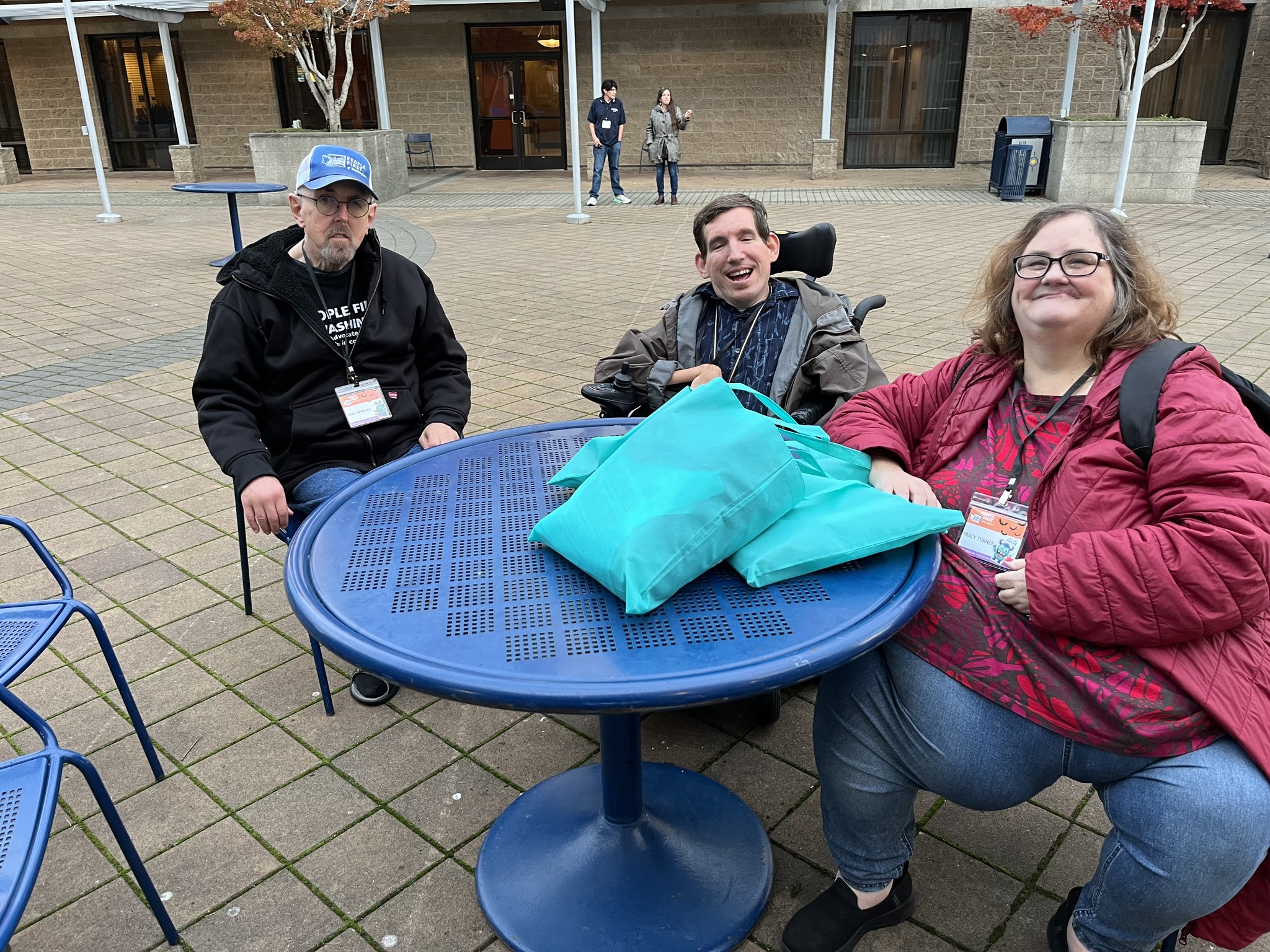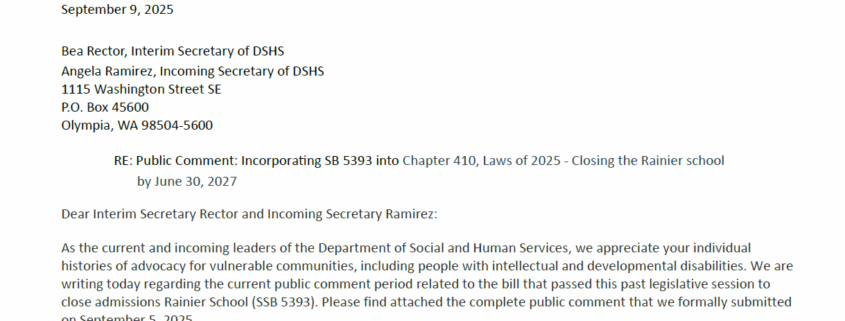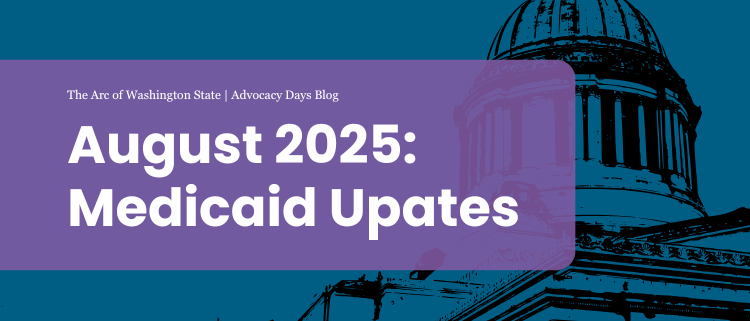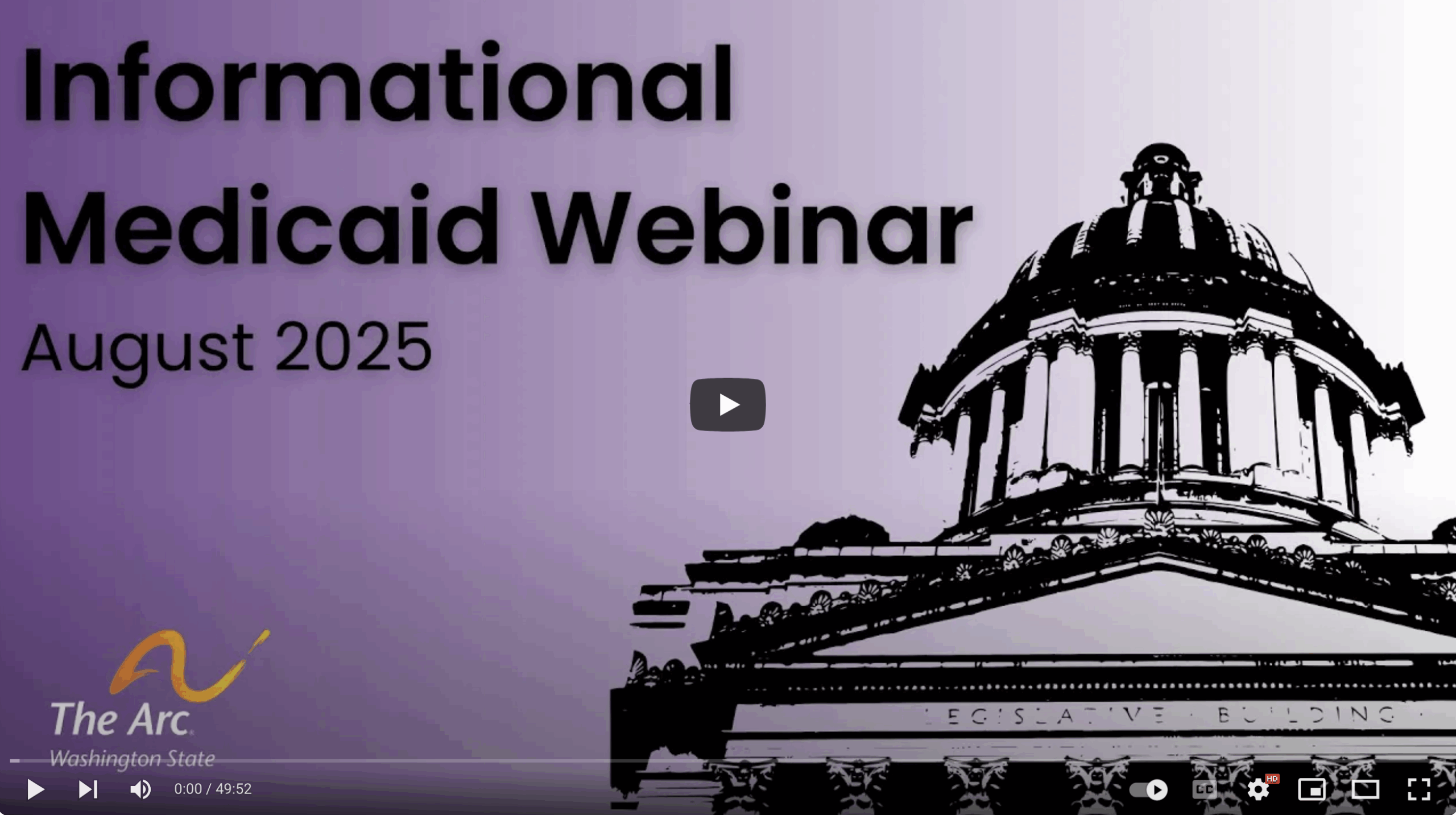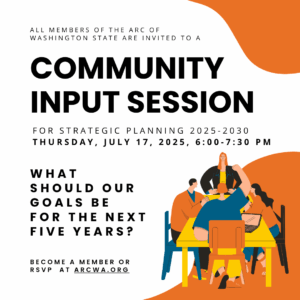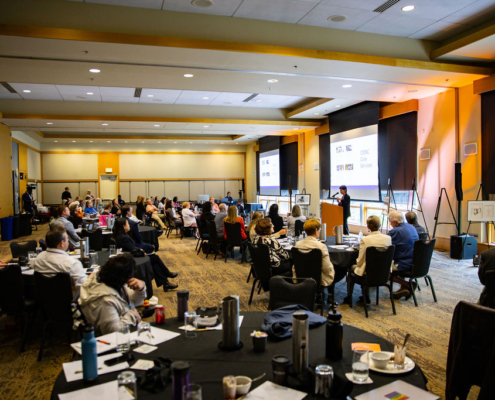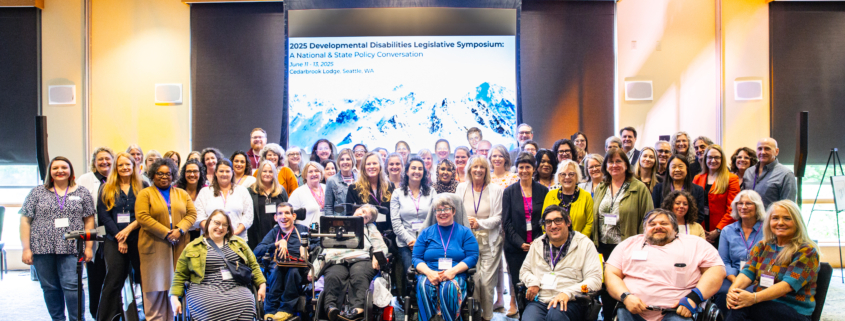Why a plan for the future is resistance: Our Strategic Plan 2025-203
My inbox is full and my heart is breaking. I can only imagine that you might be feeling similarly as we navigate the uncertainty of our country’s political landscape while also worrying about our livelihoods and our families. It’s just…exhausting.
And yet, here I am, in your inbox, reaching out across the distance and the wifi to try and render human connection. I hope that today is a day where you have some energy to keep scrolling and stay with me (but if you don’t, I understand). I’m here to offer a small seed of hope.
Despite how much has changed in our world since I started at The Arc of Washington State five years ago, what has not changed is our team’s commitment to people with intellectual and developmental disabilities (IDD). Truly, each person on our staff came here with their own story and their own inspiration for investing in the IDD community. I consider myself lucky, but I’m so grateful that The Arc is just as lucky.
As we prepare to enter our 90th year of operation, our team is excited to spend time planning ahead this fall. After incorporating the community input we received from all of you earlier this summer, the Board of Directors has approved our new Strategic Plan for 2025 through 2030. While a plan like this starts as words on paper, it has evolved from our commitment to stay the course amidst what may feel like a sea of uncertainty.
The act of planning for our future and setting goals for ourselves is in itself an act of faith. In looking ahead, we resist the notion that there is nothing to look forward to. Instead, we firmly believe that by making a plan we are building the future we want – right now.
READ THE 2025-2030 STRATEGIC PLAN
I’m sharing our plan with you now as a way to hopefully break up the headlines and the heartbreak.
If you, like me, are energized by the idea of building the future together, I also invite you to join our efforts by making a donation to The Arc of Washington State today. Whether it’s $1 or $100 , every dollar counts and every gift is meaningful. If we’re going to achieve our goals, we definitely cannot do it alone.
Together, we can keep going.
Together, we can build something better.
If you’ve stayed with me all the way through this email, thank you for spending some time here today. Please know that I am sending you strength and resilience as we navigate the world around us. If you have questions or if you want to know more about our plans for the next five years, please don’t hesitate to reply here. I look forward to hearing from you and looking ahead together.
In community,
Stacy Dym
Executive Director, The Arc of Washington State


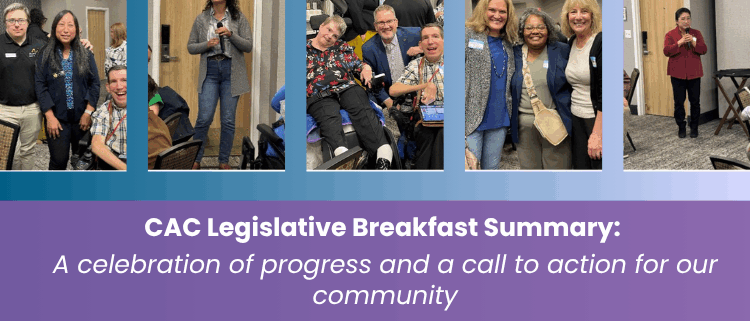
 The Arc of WA is grateful to be an integral member of The
The Arc of WA is grateful to be an integral member of The 


 Employment
Employment










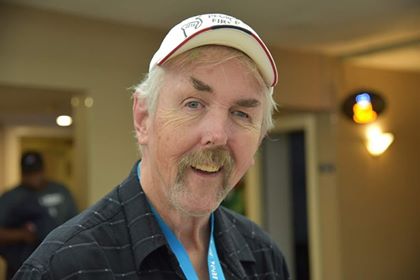 Mike Raymond, a Washington State self-advocacy leader, was born in 1947 and passed away on September 17. Mike advocated over the last 50 years to shut down the Developmental Disability Institutions, also called Residential Habilitation Centers. In particular, Mike fought for the closure of Rainier School in Buckley, one of the remaining four institutions. Mike lived at Rainier School from 1949 to 1969. He was put into Rainer after doctors told his mom he would be better off being there. Later on, the staff told him that his mother had passed away, which was a lie. During his time at Rainier, he experienced and saw many instances of abuse. He often had to push heavy blocks, walk in perfect lines, wear clothing like straightjackets, or be put into isolation when being punished. Mike also witnessed workers there using damp cloths to choke other residents.
Mike Raymond, a Washington State self-advocacy leader, was born in 1947 and passed away on September 17. Mike advocated over the last 50 years to shut down the Developmental Disability Institutions, also called Residential Habilitation Centers. In particular, Mike fought for the closure of Rainier School in Buckley, one of the remaining four institutions. Mike lived at Rainier School from 1949 to 1969. He was put into Rainer after doctors told his mom he would be better off being there. Later on, the staff told him that his mother had passed away, which was a lie. During his time at Rainier, he experienced and saw many instances of abuse. He often had to push heavy blocks, walk in perfect lines, wear clothing like straightjackets, or be put into isolation when being punished. Mike also witnessed workers there using damp cloths to choke other residents.